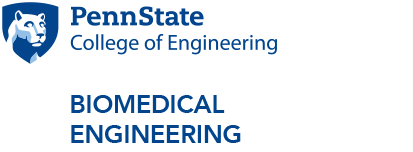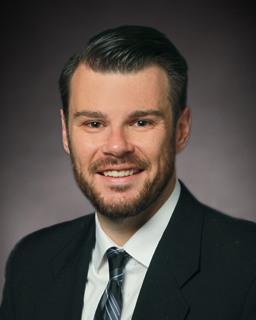Scott Medina joins the Department of Biomedical Engineering
08/31/2016
Scott Medina joins the Department of Biomedical Engineering this semester as an assistant professor.
He comes to Penn State from the National Cancer Institute (NCI) where he served as a Cancer Research Training Award Fellow under the direction of Joel Schneider for the past four years.
At the NCI, Medina designed and created peptide and polymer-based biomedical devices that impacted cancer therapy and served as tools to probe cellular biology. Previous to this work, Medina earned a Bachelor of Science Degree in civil engineering from Penn State in 2006 and a Doctor of Philosophy in biomedical engineering from the University of Michigan in 2012. As a Penn State alumnus, he is thrilled to return to the University and contribute his unique strengths to the department.
“The fact that over a decade I went from sitting in a Penn State classroom as an undergraduate student, to now having the opportunity to join the BME department as a faculty member, is incredibly exciting and humbling for me,” said Medina. “I look forward to utilizing my diverse and multidisciplinary scientific toolkit to create a vibrant and successful research program that bridges biomedical engineering, the life sciences and medicine.”
At Penn State, Medina will lead the Precision Therapeutics and Bioresponsive Materials Laboratory, which aims to develop novel stimuli-responsive biomaterials for precision medicine. Research in Medina’s lab will operate at the interface of nanomedicine, targeted immunotherapy and microbiome engineering, with the goal of inventing new technologies that can augment and improve human health.
Throughout his research career, the merit of Medina's work has been highlighted through scientific editorials and recognized by the receipt of a national fellowship, two Research Excellence Awards and the National Cancer Institute Director’s Innovation Award. Now in Happy Valley, Medina is looking forward to working with Penn State’s bright and creative engineering students to develop the next generation of innovators.




